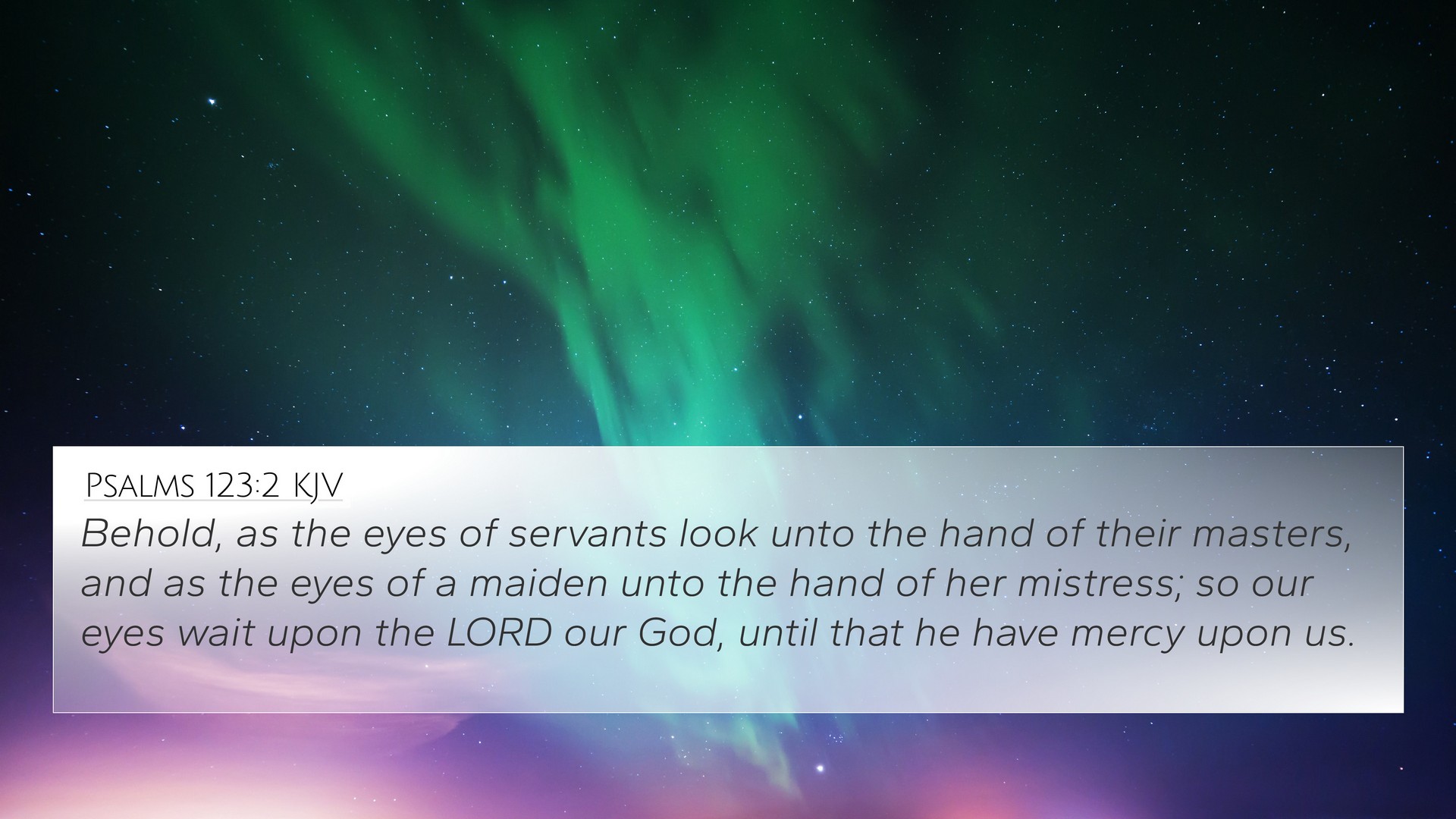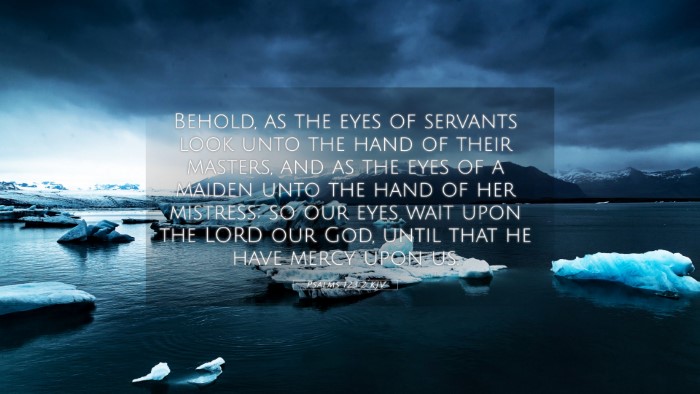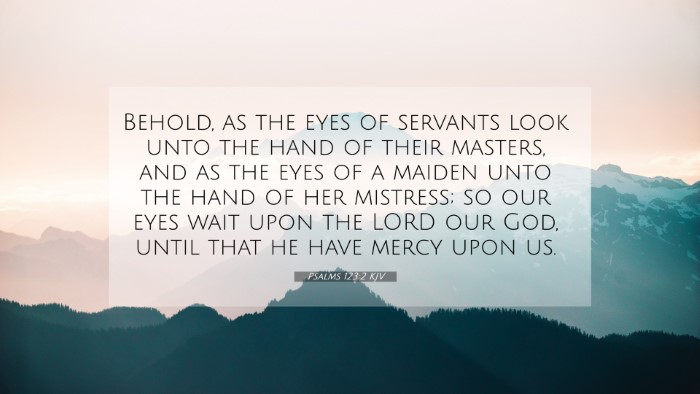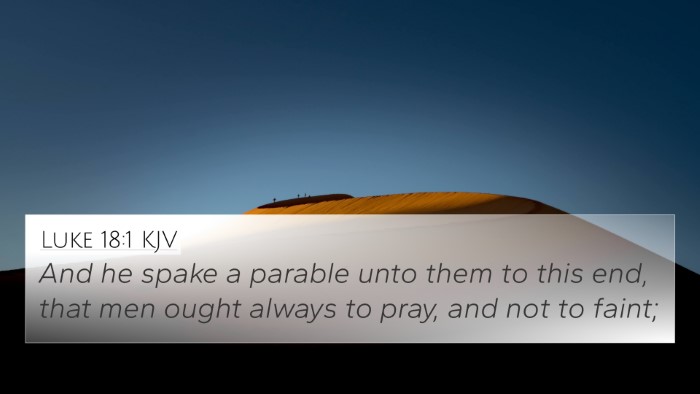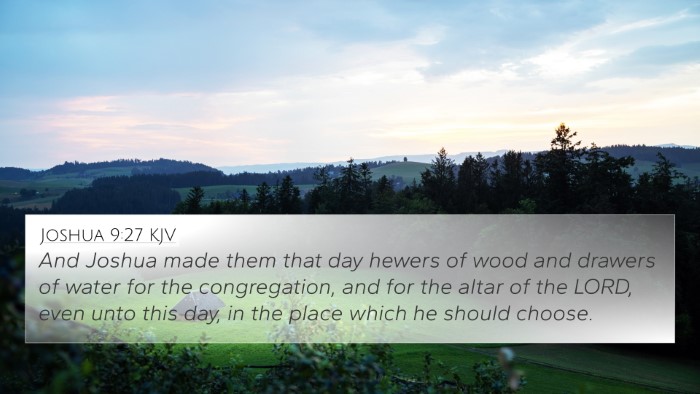Psalms 123:2 - Commentary and Interpretation
Bible Verse: "Behold, as the eyes of servants look unto the hand of their masters, and as the eyes of a maiden unto the hand of her mistress; so our eyes wait upon the LORD our God, until that he have mercy upon us." - Psalms 123:2
Understanding the Verse
This verse from Psalms emphasizes the attitude of dependence and expectation that believers should maintain toward God. The imagery used highlights a servant's gaze directed toward a master, symbolizing trust and anticipation of provision. In this context, the Psalmist expresses a longing for God's mercy, reinforcing the importance of reliance on divine grace.
Commentary Insights
Combining insights from reputable public domain commentaries:
- Matthew Henry: highlights the notion of devotedness and the necessity of looking to God for help, similar to how servants depend on their masters for direction and aid.
- Albert Barnes: provides a practical understanding of waiting on God, relating it to patience and a faithful expectation of God's intervention, akin to a servant's loyalty and attentiveness to the needs of their master.
- Adam Clarke: emphasizes the illustration of the maid's eyes on her mistress and speaks to the humility entailed in waiting for mercy, seeking God with a humble heart.
Thematic Connections
This verse establishes a clear theme of humility and trust that runs throughout Scripture. It encourages believers to maintain a posture of looking to God rather than to themselves or external sources for help.
Bible Verse Cross-References
Here are some pertinent cross-references that relate to Psalms 123:2:
- Psalm 25:5: "Lead me in thy truth, and teach me: for thou art the God of my salvation; on thee do I wait all the day."
- Isaiah 40:31: "But they that wait upon the LORD shall renew their strength; they shall mount up with wings as eagles; they shall run, and not be weary; and they shall walk, and not faint."
- Psalm 130:5: "I wait for the LORD, my soul doth wait, and in his word do I hope."
- James 5:7: "Be patient therefore, brethren, unto the coming of the Lord. Behold, the husbandman waiteth for the precious fruit of the earth, and hath long patience for it, until he receives the early and latter rain."
- Psalm 62:1: "Truly my soul waiteth upon God: from him cometh my salvation."
- Psalm 36:7: "How excellent is thy lovingkindness, O God! therefore the children of men put their trust under the shadow of thy wings."
- Psalm 119:166: "LORD, I have hoped for thy salvation, and done thy commandments."
Cross-Referencing Biblical Texts
This kind of inter-Biblical dialogue enriches the reader's understanding and presents a comprehensive view of waiting on God and his mercy. Each of these references complements the message of Psalm 123:2, creating thematic connections throughout the Scriptures.
Practicing Scriptural Cross-Referencing
Using tools for Bible cross-referencing can significantly enhance one’s study of Scripture. Engaging with a Bible concordance or a Bible cross-reference guide aids in uncovering more profound insights and links between various Biblical texts and themes.
How to Use Cross-References
For those seeking to learn how to find cross-references in the Bible, consider the following methods:
- Consulting Bible Concordances: These tools often categorize verses thematically, allowing for the identification of interrelated passages.
- Utilizing Study Bibles: Many modern study Bibles include footnotes and references for deeper understanding.
- Engaging in Comparative Bible Verse Analysis: This approach involves examining verses in light of one another, providing clarity on doctrinal matters.
Conclusion
In conclusion, Psalms 123:2 serves as a poignant reminder of our need for God's mercy and the proper attitude we should maintain while waiting for His aid. It calls for patience, humility, and an unwavering expectation of divine intervention in our lives. By leveraging cross-referencing and thematic explorations of Scripture, believers can deepen their understanding of God’s word and enhance their spiritual walk.
